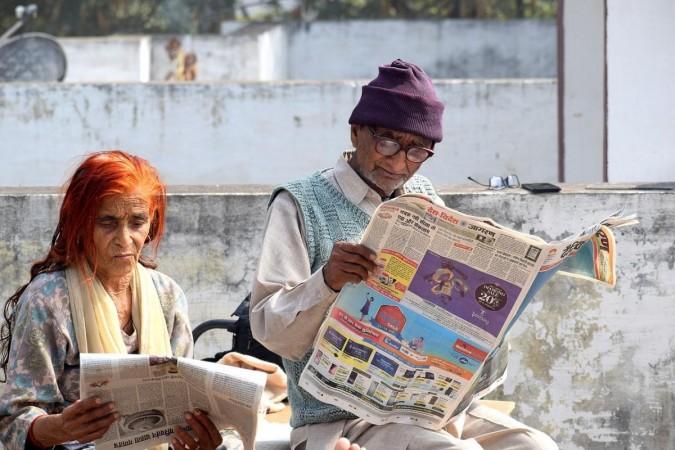
India's media across television, print, and digital has long been celebrated as a vibrant pillar of the world's largest democracy. Yet, in 2025, the industry faces an unprecedented crisis of credibility and public trust. A relentless pursuit of ratings and readership, deepening political and commercial entanglements, and a drift from foundational journalistic values have left the fourth estate at a crossroads. The consequences are profound, not only for the profession but for Indian democracy itself.
"Freedom of the press is the foundation of democracy and justice. It gives all of us the facts we need to shape opinions and speak truth to power." — António Guterres, UN Secretary-General
Recent Failures: A Pattern of Spectacle and Neglect
The past year has seen a string of high-profile media missteps that have eroded public confidence:
The "Capt Steeeeve" Episode:
In the wake of the AI-171 air disaster, an unknown person lacking any aviation credentials was given national airtime to make baseless, damaging allegations against a deceased co-pilot. The episode, widely reported in both broadcast and print, exemplified the media's descent into spectacle at the expense of verification and sensitivity.
"There can be no higher law in journalism than, to tell the truth, and to shame the devil." — Walter Lippmann
Operation Sindoor and the Sindur Distribution Myth:
What began as coverage of a military operation devolved into a circus of unverified claims, recycled footage, and sensationalist rhetoric. The "sindur gifting" rumor, reported as fact by multiple outlets, was later debunked but not before fueling political acrimony.
"Freedom of the Press, if it means anything at all, means the freedom to criticise and oppose." — George Orwell
International Misinformation:
The unconfirmed story of Pakistan's Army Chief Asim Munir's invitation to a U.S. parade was widely disseminated, only to be denied by American officials. Similar lapses such as the use of AI-generated crime reconstructions and fake war footage have blurred the line between fact and fiction.
"We have to uphold a free press and freedom of speech because, in the end, lies and misinformation are no match for the truth." — Barack Obama
The Sushant Singh Rajput Case:
The tragic suicide of the actor became a months-long media spectacle, with conjecture and personal attacks overshadowing responsible reporting and due process. Both television and print tabloids contributed to the frenzy.
"Journalism can never be silent: that is its greatest virtue and its greatest fault." — Henry Anatole Grunwald
Structural Drivers: Sensationalism, Influence, and Editorial Erosion
A 2024 News Broadcasters Federation survey revealed that 68% of Indian news channels prioritized entertainment value over factual accuracy a trend mirrored in print media's tabloidization. The commercial imperative to capture eyeballs has transformed newsrooms into factories of outrage and spectacle.
Political and commercial entanglements further compromise editorial independence. Media ownership is increasingly concentrated among conglomerates with business and political interests, while both ruling and opposition parties exploit media platforms for narrative control. Senior journalists and editors, sometimes beholden to political leaders through favors or access, contribute to a culture where uncomfortable truths are suppressed and narratives are manufactured.
Regulatory bodies such as the NBDSA, Press Council of India, and Registrar of Newspapers for India exist, but enforcement is weak. Recommendations for stronger, independent oversight and transparent ownership disclosures remain largely unheeded.
"A free press can, of course, be good or bad, but most certainly without freedom, the press will never be anything but bad." — Albert Camus
Neglecting the Public Good: What Gets Overlooked
While newsrooms chase viral controversies, coverage of issues with direct impact on citizens rural distress, unemployment, inflation, healthcare, education, and environmental degradation has dwindled. Government actions warranting scrutiny are often glossed over or spun to fit dominant narratives, leaving citizens uninformed about matters that directly affect their lives.
"The people must know before they can act and there is no educator to compare with the press." — Ida B. Wells
Consequences: Erosion of Trust and Democratic Vitality
Public trust in Indian media is at an all-time low. A 2025 Lokniti-CSDS survey found that 63% of Indians distrust television news, and 54% express skepticism toward print media. Sensationalism polarizes society, distorts public discourse, and can even influence judicial processes. Victims and their families often endure secondary trauma from irresponsible coverage.
"When the public's right to know is threatened, and when the rights of free speech and free press are at risk, all of the other liberties we hold dear are endangered." — Christopher Dodd
The Path Forward: Reclaiming the Fourth Estate's Purpose
To restore credibility and fulfill its democratic role, Indian media must:
- Empower Regulatory Bodies: Grant NBDSA, Press Council, and RNI real enforcement authority and mandate transparency in ownership.
- Reinforce Editorial Independence: Invest in rigorous fact-checking, ethical oversight, and clear separation between editorial and commercial interests.
- Promote Media Literacy: Implement widespread public education to enhance critical consumption of news.
- Support Civil Society Oversight: Encourage independent watchdogs and fact-checkers to hold media accountable.
- Foster Ethical Leadership: Media owners, editors, and journalists must recommit to integrity and public service.
"Knowledge will forever govern ignorance, and a people who mean to be their own governors must arm themselves with the power which knowledge gives." — James Madison
The current crisis in Indian media is not a mere collection of embarrassing errors but a profound challenge to the very ideals of journalism and democracy. As India confronts complex social, economic, and geopolitical challenges, the need for a mature, independent, and responsible media has never been greater. The time for introspection has passed; the time for decisive reform is now. Editors, regulators, political actors, and citizens alike must rise to the occasion to restore the fourth estate's integrity before its credibility, and the democratic fabric it supports, are irrevocably damaged.
"Freedom of the press is the mortar that binds together the bricks of democracy—and it is also the open window embedded in those bricks." — Shashi Tharoor
[The author is an Army Veteran. The views expressed are personal.]

















